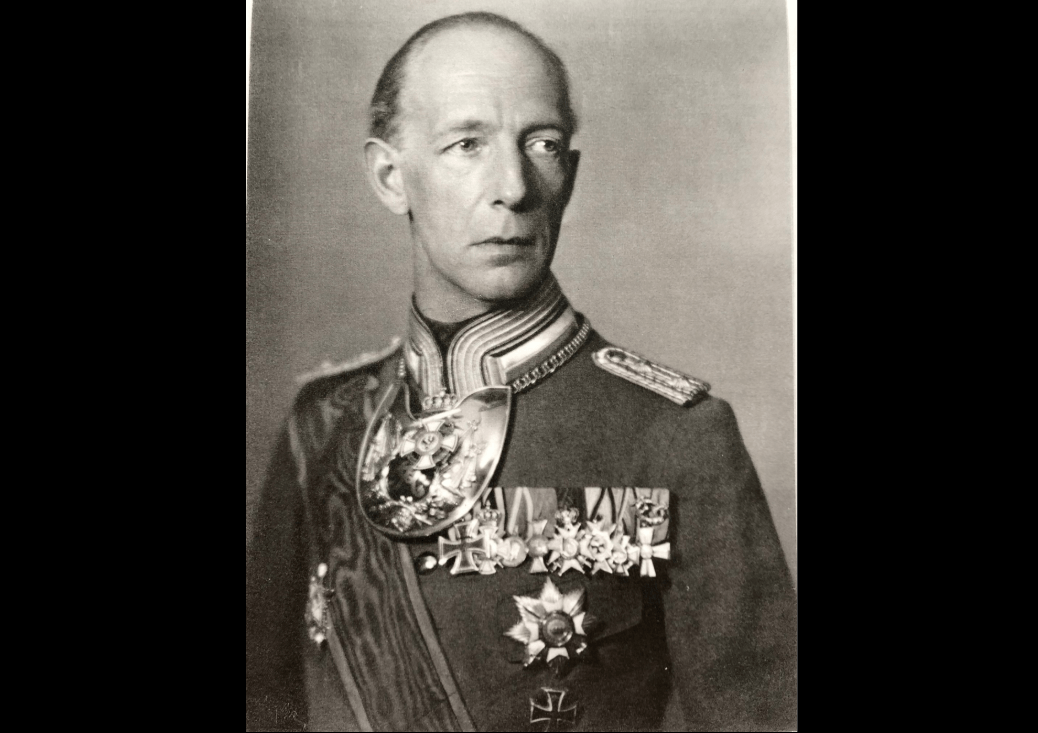
On the 30th anniversary of the fall of the Berlin Wall, Friedrich zu Solms-Baruth explains why he is still waging a legal battle that has its roots in Germany’s darkest days

My grandfather, Prince Friedrich zu Solm-Baruth (pictured), was a major landowner in Brandenburg and Silesia (his father was Grand Chamberlin to Kaiser Wilhelm II) but because of the rise of Hitler and National Socialism, he retired from the military to tend to his estates.
Politics at that time was never very far away however, and he remained a confident of General von Beck, a key instigator of the July 1944 (Operation Valkyrie) plot to assassinate Hitler and bring an end to the war. In fact, the family estate at Baruth became a centre of resistance, and where an Abwehr (German military intelligence service which became a cornerstone in the anti-Hitler planning) unit had based itself at the house (pictured below).

When Operation Valkyrie failed, my grandfather was arrested and imprisoned in the much-feared Gestapo prison at Prinz-Albrecht-Strasse where, after nine months of unbearable daily torture, he was forced to sign power of disposal over his land and assets to Himmler – using a legal structure that Himmler and the SS developed to conceal the theft, and which was an integral part of the competing elements of the Nazi kleptocracy.
A broken man, he fled first north to Denmark, and then to Southern Africa, upon the personal invitation of General Smuts who recognised that he had played a key role in the resistance against Hitler.
It was therefore my father’s lifelong wish to pursue the German authorities for the return of this land – so that our family could right an historical wrong which was eclipsed by the rise of East Germany and 40 years of communism.
That moment came thirty years ago on 9 November 1989 when the Berlin Wall fell. At last we had a united, democratic Germany and surely we had the opportunity to present our legitimate claim.
Sadly over these 30 years I have been disappointed, frustrated and now fearful at the extent to which democracy and the rule of law has failed my family.
After many legal fights and a partial settlement in 2003, the German courts ruled in 2014 that the expert testimony of noted historian Sir Anthony Beevor, British Intelligence and other experts could not be accepted. The state was not required to call expert witnesses of their own.
As Lord Goldsmith, former Attorney-General of England & Wales stated: ‘At the outset, I found it surprising that 75 years after the event, the descendant of one of the victims of Nazi expropriation was forced to resort to the courts to prove his right to recover his confiscated assets.’
Since then, the work of my legal team has unearthed new evidence that seems to fully supports the rights to restitution under German law.
This new evidence was uncovered in 2017: firstly the Himmler Decree of 1943 was discovered which dictated step-by-step the process the SS should follow to expropriate assets and which was structured to conceal these thefts.
Then my legal team uncovered an ‘Oberfinanzprasident’ (the precursor to the Federal Finance Ministry) file, which shows the description of my grandfather’s assets was changed to ‘state property’ by the Nazis.
Thirdly chemical ink analysis at the Brandenburg State Archive, where we tested the ink on the stored instructions to destroy the deeds relating to the land, gave incontrovertible proof that the instructions had been written in ink used by the Nazis, not by the East German regime.
What we have found shocking is that the authorities claimed to not know there were thousands of files in the Federal Restitution Archive, yet they were filed under ‘restitution’.
On October 2nd 2019 we received a response from the Federal Administrative Court which denied our claim and stated that we have received a fair-hearing and that the court had had taken into account the full facts and historical evidence.
In ruling this way, the current system harks back to the darkest days of the country’s history.
There is precedent for such miss-steps on the part of the modern German establishment, and also, fortunately, for brave crusaders who have battled against it. Dina Gold fought the German authorities for restitution for one of her family’s buildings in Berlin and documented her case in Stolen Legacy. She was dragged through the courts and even had the indignity of being asked to provide death certificates for family members who died at Auschwitz.
In my view, international attention from the media contributed to the decision to take action with regard to Dina’s family’s case.
We lodged our own appeal at the end of October and now the case goes to the Federal Constitutional Court. If this fails, then Lord Goldsmith will take it to the European Court of Human Rights.
Through my case I hope to shine a light on the many other cases which lie in the Federal Archive and also to highlight the risks to private property that continue due to the courts and government’s continued position.
Finally I will have upheld the values and principles my grandfather supported, defended and was ultimately arrested, tortured and sent to a premature death for, because he defended them so stridently.






